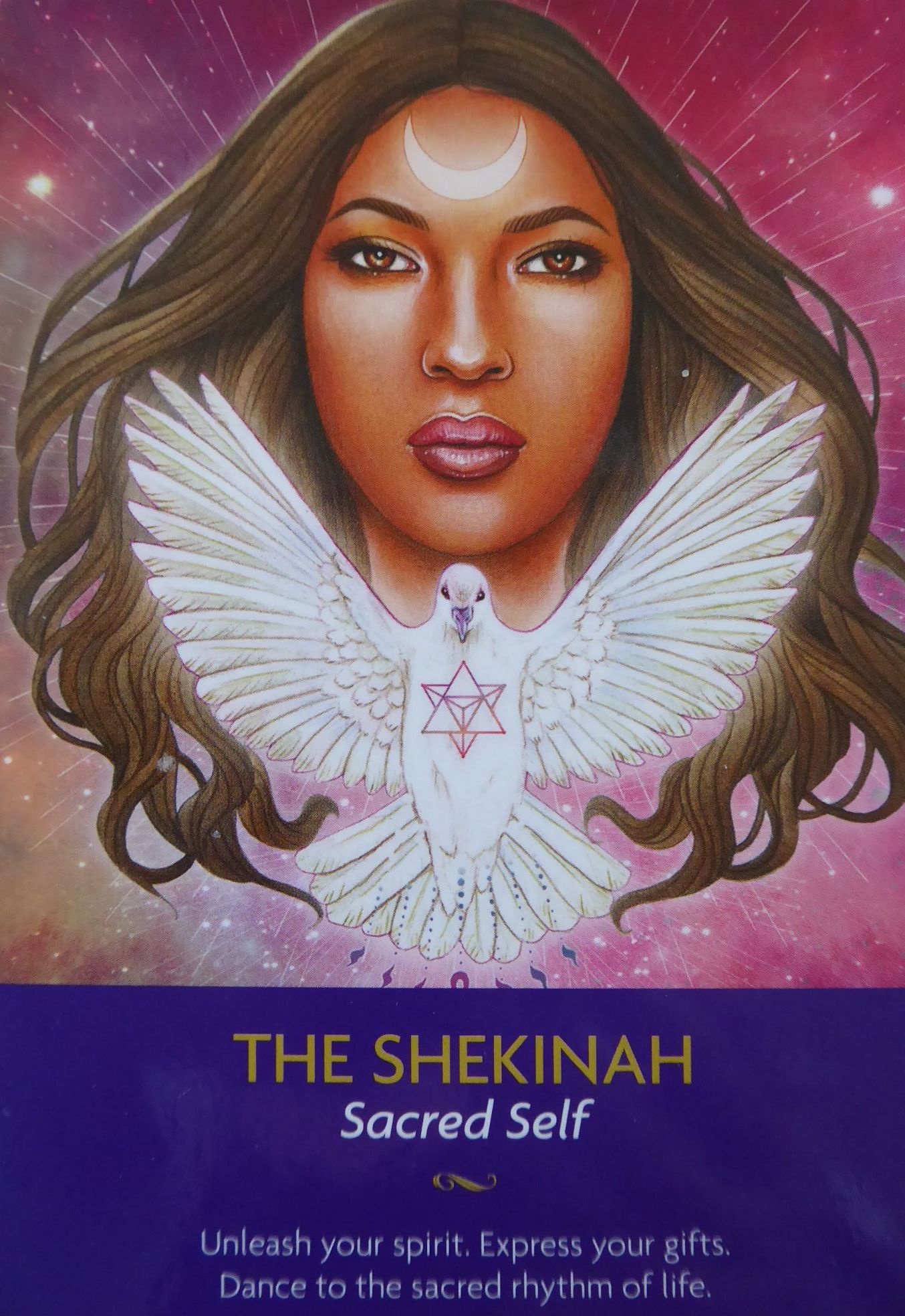Have you ever felt a deep pull to understand more about the divine, that sense of something sacred and powerful that feels very real, yet sometimes hard to grasp? For many, the search for answers about God's closeness, His actual presence among us, is a profoundly personal quest. This exploration, in a way, is what brings us to consider concepts like the "Shekinah," a term that has come to mean so much to those who seek a tangible connection with the Creator. We're going to look closely at some thoughts, almost like a collection of reflections on this very idea, thoughts that might just resonate with you, Pugh, as you ponder these deep spiritual matters.
You know, it's rather interesting how certain words take on a special weight in spiritual discussions. The word "Shekinah," for instance, was adopted by Christians as a sort of gentle descriptor for how God makes Himself known, His actual presence dwelling with His people. It’s not something you’d find spelled out in the older, ancient texts, but it certainly captures a feeling, a profound reality for many. This term helps us talk about that closeness, that intimate connection between the divine and humanity, a concept that really helps to bring the abstract into something more relatable.
So, what does this "Shekinah" really mean for us today, and what can we learn about it from past understandings? We’ll be looking into some core ideas, exploring how this divine presence showed up long ago, what happened to it, and what it might signify for our own spiritual journeys. This discussion aims to unpack some of those enduring questions about God's nearness, offering insights into what it means to truly experience the divine in our lives, and perhaps, for you, Pugh, to find some clarity on these important spiritual concepts.
Table of Contents
- What is the Shekinah, Anyway?
- Shekinah's Presence - Then and Now
- Is Shekinah the Holy Spirit, a Question for Shekinah Pugh?
- Beyond the Cherubim: Where Did the Shekinah Go?
- What Does "Justified" Mean for Us, Shekinah Pugh?
- Finding Answers: Your Bible Questions, Shekinah Pugh
What is the Shekinah, Anyway?
When people talk about the "Shekinah," they're really trying to describe something quite grand: God's very own presence, His personal appearance among people. It's a way of putting words to the idea that the divine isn't just far off, but can actually be right here, right with us. The phrase "Shekinah glory," too it's almost like a poetic way of talking about that very same divine presence, but perhaps with an added sense of splendor or radiance. It’s a symbol, you see, a picture in our minds that helps us grasp something so much bigger than ourselves. This idea, really, helps us to think about how the divine interacts with the human world, offering a sense of comfort and reassurance to those who believe. It's a concept that has resonated deeply with many, providing a framework for understanding God's active involvement in the lives of His followers.
Shekinah's Presence - Then and Now
The "Shekinah," or that visible display of God's amazing presence, was something quite real and tangible in ancient times. It was there, very much present, in the wilderness when the people of Israel were wandering, providing guidance and comfort. And then, too, it was a central feature of the first temple, a sacred place where people felt God's closeness in a truly special way. This presence wasn't just a fleeting thought; it was a powerful, visible sign that God was indeed with His chosen people. It really served as a constant reminder of His covenant and His commitment to them, offering both protection and a profound sense of identity. This visible manifestation was, in some respects, a cornerstone of their faith, shaping their understanding of the divine.
Shekinah's Light: The Mercy Seat Connection for Shekinah Pugh
One of the most striking ways this divine presence showed itself was as a glowing light, appearing right over what was called the "mercy seat." This light, you know, was referred to as the "Shekinah." It was a powerful symbol, a visible sign of God's closeness and His willingness to meet with His people. The "mercy seat" itself, in Hebrew, is called "kapporeth." This word, "kapporeth," really refers to the cover of the Ark of the Covenant, a most sacred object. It's interesting, because when I tried to find the word "Shekinah" in the Hebrew dictionary part of Strong's Concordance, I just couldn't find anything resembling it. So, I had to assume, in a way, that the word itself isn't directly in the Old Testament, at least not in that specific form. This suggests that while the concept is clearly there, the word "Shekinah" itself might have developed later as a way to describe this powerful, divine manifestation, a point that might be quite interesting for you, Pugh, as you delve into these spiritual terms.
Is Shekinah the Holy Spirit, a Question for Shekinah Pugh?
This is a question that many people ponder, and it's a very good one, actually. Is the Shekinah, that visible glory and presence, one and the same as the Holy Spirit? It's a point of discussion among those who study these things. The "My text" we're drawing from here brings up this very question, suggesting that it's a topic worth considering for anyone trying to understand the nuances of divine manifestation. With the destruction of the temple, and then the coming of Yeshua, Jesus, the way God's presence was understood certainly changed. It seems to suggest a shift, a new way for God to be present with His people, perhaps in a less visible, but no less real, manner. This shift, you see, prompts us to think about how God's spirit works in the world today, making this a truly thought-provoking query for you, Shekinah Pugh, as you explore these deep theological ideas.
Beyond the Cherubim: Where Did the Shekinah Go?
After a certain point in history, the Shekinah, that amazing divine presence, no longer resided between the cherubim in the most sacred space, the Most Holy Place. It just wasn't there anymore. The Ark of the Covenant, the mercy seat, and even the tables holding the testimony, those very important items, they weren't found there either. This absence was a significant change, a sign that something profound had shifted. There was no sign from heaven made in the same way, no visible manifestation like before. This really marks a turning point in how God's presence was experienced by His people. It suggests that the old ways of encountering the divine were changing, making room for something new, something that would perhaps be more internal or universal.
Jehovah Shammah: God is There for Shekinah Pugh
Even with the changes and the absence of the Shekinah in its former dwelling, the idea of God's presence didn't just vanish. There's a powerful phrase, "Jehovah Shammah," that appears in the book of Ezekiel, specifically in chapter 48, verse 35. This name, "Jehovah Shammah," is given to a city that the prophet Ezekiel saw in a vision. What does "Jehovah Shammah" mean? It simply means "the Lord is there." This is a rather comforting thought, isn't it? It suggests that even when the visible glory isn't present in the old ways, God's presence is still a fundamental truth. It's a promise that He is always there, always available, and this promise carries a lot of weight for believers. This concept, you know, provides a different kind of assurance, a sense of constant divine companionship, which might be particularly meaningful for you, Pugh, as you reflect on God's enduring faithfulness.
What Does "Justified" Mean for Us, Shekinah Pugh?
Moving from the idea of God's presence, another important concept that often comes up in spiritual discussions is "justification." What does it actually mean to be justified? Well, simply put, it means to be made right, to be declared just or righteous. This isn't, you know, our natural state as human beings, as we all very well know. The "My text" we're working with here reminds us of a fundamental truth: "for all have sinned and fall short." This idea of falling short, of not being naturally in a right standing with the divine, is something that many traditions speak about. Justification, then, becomes a way for people to bridge that gap, to be brought into a proper relationship with God. It's a process, or a declaration, that helps us understand how individuals can become acceptable in the eyes of a holy God, a topic that is certainly central to many faiths and perhaps something you, Shekinah Pugh, have considered deeply.
Finding Answers: Your Bible Questions, Shekinah Pugh
It's completely natural to have questions when you're exploring deep spiritual topics like the Shekinah, or justification, or even the historical details of the temple. If you have a question about the Bible and are genuinely looking for an answer directly from the scriptures, it's good to know that resources exist. Our database of commonly asked questions, for example, might just hold the answer you're seeking. These kinds of resources are really put together to help people like you, Pugh, who are curious and want to understand the Bible better. They aim to provide clarity on various topics, from the meaning of ancient words to the significance of historical events, offering a straightforward path to information for those who are earnestly seeking knowledge from sacred texts.
This article has explored several profound concepts, drawing insights from a collection of thoughts on the Shekinah. We began by considering the very nature of the Shekinah as God's presence among His people, especially the visible glory over the mercy seat. We then looked at questions surrounding the Shekinah's connection to the Holy Spirit and its eventual departure from the temple. The discussion also touched upon the enduring promise of God's presence through "Jehovah Shammah" and the meaning of "justification" for individuals. Finally, we acknowledged the importance of seeking answers to biblical questions through available resources.
Related Resources:
Detail Author:
- Name : Isadore Bernhard
- Username : wunsch.pete
- Email : kessler.jaron@gmail.com
- Birthdate : 2002-02-17
- Address : 26758 Crooks Park Gislasonburgh, VA 02968
- Phone : +1 (813) 403-7154
- Company : Wuckert, Hand and Konopelski
- Job : Financial Analyst
- Bio : Laboriosam quo nam magnam amet impedit. Rem ab nulla et consequatur. Odio facere sunt possimus magnam aut consequatur.
Socials
instagram:
- url : https://instagram.com/tatyana_stroman
- username : tatyana_stroman
- bio : Ab quam aut ex. Est aspernatur deleniti voluptatibus. Quia eum deserunt autem sed vel ut sunt et.
- followers : 1723
- following : 2882
linkedin:
- url : https://linkedin.com/in/stroman2025
- username : stroman2025
- bio : Ab est iusto totam est inventore ad hic.
- followers : 5540
- following : 1753
tiktok:
- url : https://tiktok.com/@tstroman
- username : tstroman
- bio : Temporibus rerum laborum cumque rerum in aut sapiente.
- followers : 3989
- following : 1578
facebook:
- url : https://facebook.com/stromant
- username : stromant
- bio : Perspiciatis dignissimos incidunt aut esse.
- followers : 4728
- following : 2078


